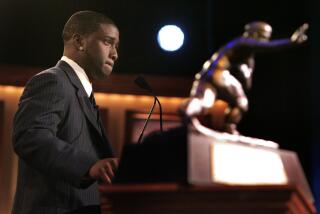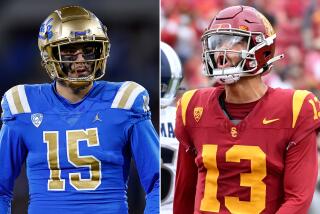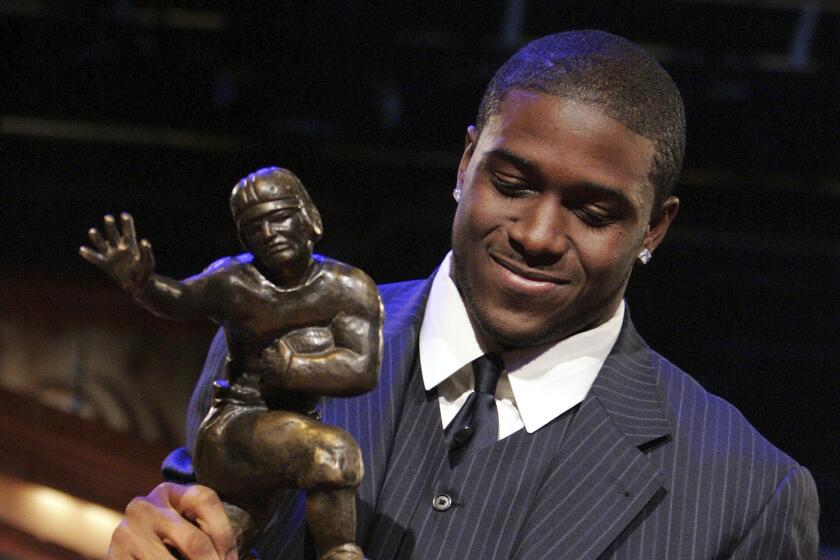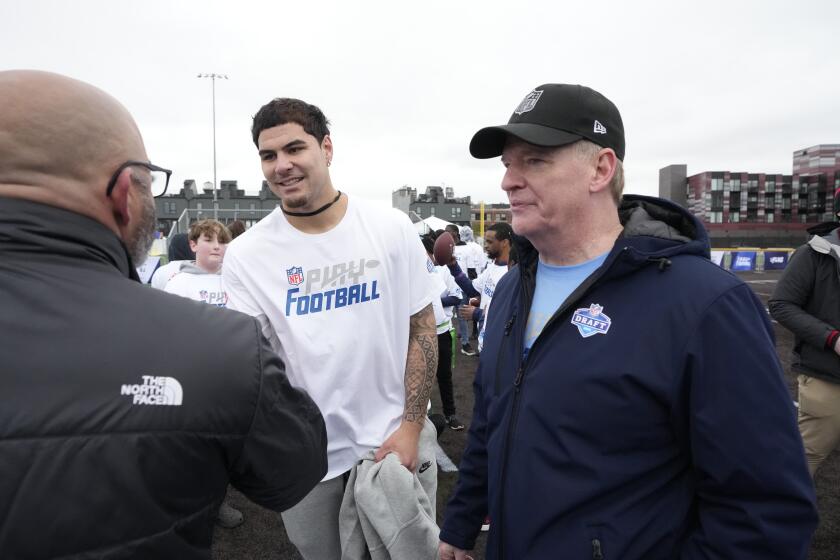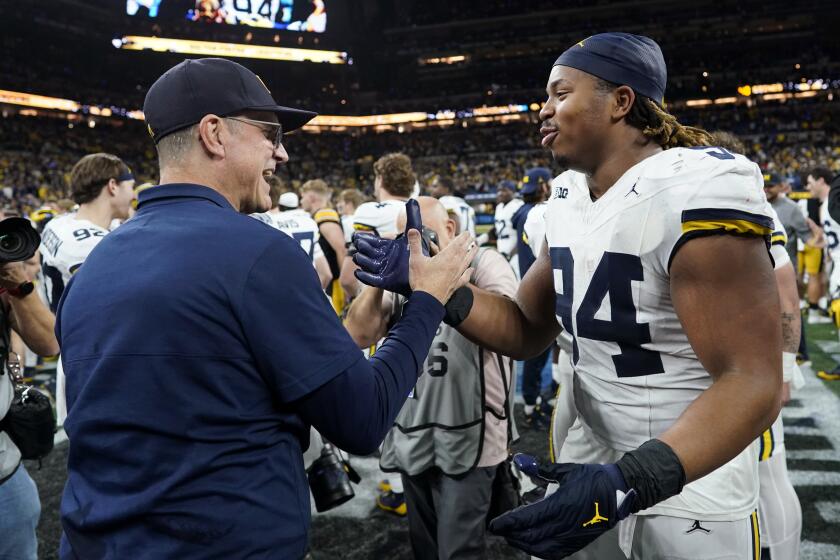A sorry spectacle
HERE’S SOMETHING to think about: Maybe most of the ideas that pass through your head are not worth expressing aloud.
If only this lesson had been learned in time by last week’s captain of stream-of-consciousness, Tim Hardaway, the former NBA point guard who bragged that he hates gay people. His gaffe follows those of Isaiah Washington, the actor who recently completed a stint in (unclearly defined) rehab for his public use of a homophobic slur, and Michael Richards, the former “Seinfeld” star who is still trying to repay society for a racist tirade at a comedy club in November.
The question with outbursts such as these -- and with reactions to them -- is what they represent. Are they one person’s rantings or the unspoken attitudes of society at large?
Perhaps Hardaway merely voiced his own prejudices. (And really, who knows what identity issues might arise from the ambidexterity needed to execute Hardaway’s signature crossover dribble?) Or maybe he articulated a broadly shared sense of homophobia in professional hoops’ locker rooms.
But there’s a crucial piece of context in this flap. Hardaway was responding to the publication of “Man In the Middle,” former NBA center John Amaechi’s memoir of being gay in the pros. The book has received enormous publicity, and it’s a good bet that Amaechi will come out ahead in this controversy -- in money and in reputation.
Hardaway, who issued an apology Thursday through his agent, was banished from this weekend’s All-Star game festivities in Las Vegas by NBA Commissioner David Stern.
In fact, if there’s a common feature to these controversies, it’s the force with which the transgressor gets punished. Some viewers are still demanding that Washington be fired from his hit show, “Grey’s Anatomy.” Richards, whose career was already on the skids, is now more retired than ever, and his refusal last week to attend a cracker-barrel mediation session with celebrity lawyer Gloria Allred is the first sign anybody’s seen that the ordeal has not cost him his sanity.
The group glee of these denunciations may be unseemly. At the same time, it serves a useful purpose. Public reprobation works best when aimed at behaviors instead of beliefs. Overt racism has been mostly off-limits for a long time, but an antigay atmosphere was until fairly recently permissible in both private conversation and popular culture.
By any measure, it’s encouraging that these attitudes are now expected to wither shamefully in the closet.
More to Read
Get our high school sports newsletter
Prep Rally is devoted to the SoCal high school sports experience, bringing you scores, stories and a behind-the-scenes look at what makes prep sports so popular.
You may occasionally receive promotional content from the Los Angeles Times.
